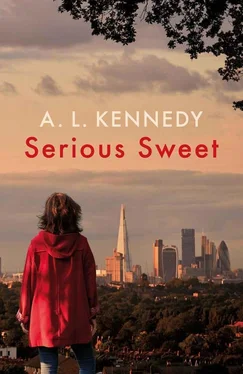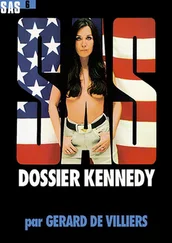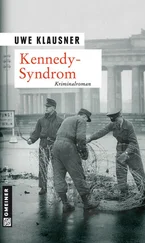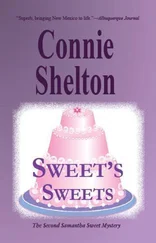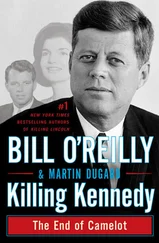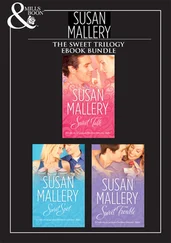Curious tourists leaned on the barriers and took pictures while a German film crew cruised back and forth, attempting to find anybody who would willingly offer comment to a German.
And there was a scatter of those who loved their country — their idea of their country — in more personal types of fancy dress: the Union Jack coats and handmade badges, the top hats with the photos attached. They straggled around and paced, anticipating. The nation was set out in bitter, brittle pieces — in sparse and crazy pieces.
It was like staring at the essence of all I would rather not be.
It made me sad.
And the cameraman climbed his tower and started to practise lazy dips with the camera boom. And the drizzle drizzled. And the police in the road — being all there was to watch — acted out their cold for everyone’s entertainment: taking little dancing steps, clapping their gloved hands together, puffing out their cheeks.
A man in the crowd who had come all the way from Manchester that morning, announced the fact: ‘I was at Churchill’s funeral, too.’ Meg listened while he told her this, uninvited, in the same way he had told a number of other people and would presumably tell more. But not the Germans.
Meg was shivering by the time the gun carriage rattled by, heading for the transfer point — bright metal and black gloss. She turned away from it, turned her back, because that seemed appropriate — this helpless spin of 180 degrees about which nobody could surely care.
And then she wound herself back round again to wait for the actual body of a human being, now deceased, defeated by the end of all power, and soon to be limousined along, much as it might have been in life.
Here would be the satisfaction Meg had wished for.
But there was no satisfaction. Naturally.
The hearse lashed around the bend from Parliament Square, as if in flight from a disreputable public.
Someone threw flowers — and again — as what had been the Baroness pelted past. The blooms landed very short and hit the tarmac: they were something with a dingy green flower, a hellebore. They must have been from a garden and perhaps had some personal significance. The hellebore is poisonous. The flowers are meant to drive out discord and bring in tranquillity.
It all has a double meaning now — what any politician says … Where there is hatred, let me sow love …
Whatever they tell you, exactly reverse it and you’ll be right. Meg — having shown disrespect to the gun carriage — had found herself absurdly and unpleasantly flanked by police. They oozed through the crowd towards her and then stuck — two coppers in tall helmets.
As if I would do what? Leap over the barrier and somersault on to the bonnet of the hearse?
Why be afraid of me?
I didn’t matter.
Nothing I did mattered.
And nor did their intervention matter.
Meg discovered a third uniform standing close behind her when she turned her back, this time against the limousine. The uniform belonged to a policewoman who wore a name badge which said she was called Debbie. Debbie shouted, ‘Bless her.’ She aimed this past Meg’s ear with educative fervour as the illustrious corpse shot by in its glossy transportation — propelled at unstately pace.
And that was it.
No more.
There was only cold after, deep cold.
The crowd frittered itself away.
There was a type of shock that nothing was different, even now — that it never would be. The grey and the chill would stay grey and chill.
There was a great disappointment, closing in.
You find yourself disgusting, because you often do and because this time you have wished an old woman to death. Or at least wished that you could.
You are staring at others and seeing they are inexplicable …
You see and see and see and you can’t stop …
You have come to watch and be a friend of death, to love it — and, now that you’re here, you can feel it take an interest. You feel its scrutiny, digging in sharp — like the attention of the worst kind of police.
Your current police have melted back from you and gone, they are swinging along the pavement somewhere — you can’t see them.
Maggie’s funeral — it pushes you completely away …
You take yourself away.
You walk through the damp air and find the nearest pub and you ask the lady who’s working the optics to set up a double whisky and then another, because you have fallen behind. You ask very politely but inside you are fierce.
You drink among people you cannot agree with — faithful mourners, coddling wine glasses in chilled hands — and yet you don’t mind this at all.
Your aim is to not mind anything any more.
You wish to go away.
In every sense, you wish to go far away and have no intention of ever coming back.
Meg had got and then stayed drunk.
It had taken her more than a year to retrieve herself.
Blinds drawn and a minicab to fetch the bottles when you get too scared to send yourself outside, too ashamed in the off-licence. Selling the telly. Selling all manner of odds and ends that your parents kept and cared for and left you so that you could love them — not love death — so you could remember earlier, gentle days.
They left you their house, or you’d have wound up homeless. And even then, you nearly drank the place.
Only a whisker away from the full drop — and no net there to catch you. There’s no such thing as a net to catch you, not any more.
And you don’t deserve one.
Silly cow, you are.
There’s no such thing as anything.
Silly cow, she was, old Maggie.
But I’m sillier.
Letting her almost kill me.
And, since then, Meg had agreed it was wise not to dwell — several people had mentioned this — wise not to dwell on politics and the meaninglessness of hope. She was properly sober now and wanted to stay that way. So she tried not to think of politics, not in any form, songs included.
I fill my head with other things.
I just collect all the good stuff that I see and I save it up and write it down and I try to be grateful. I bear it in mind.
A couple stand in Shepherd Market, a corner of Mayfair that harmlessly pretends to be a village square. The pair are just outside a restaurant and may have eaten a meal together, although it is too late for lunch and too early for dinner. They have the look of people who are interested in each other, who are attentive.
The man is taller than the woman by a quite significant amount and so when they embrace her head meets the height of his heart, or thereabouts. Their attempt to hold each other is a little clumsy initially, the man trying to stoop at first, to shape himself both around and away from the woman, perhaps in the hope of avoiding excessive contact. He may not wish to seem overly forceful, he may not wish to feel overly forced. The woman stays still, perhaps unsure of her response, although there is a calm about her which suggests she is concentrating, perhaps finishing a decision, or pressing herself to particularly take note.
Thereafter, the man straightens his back and their bodies meet, fit, they clasp. Their movements are slow and gentle to a degree that suggests a knowledge of previous injury, or mutual illness. Their hands dab and pat, as if they are hoping to offer reassurance after some past calamity. Equally, they may be attempting to furnish support as some present calamity runs its course.
The little courtyard is quiet around them. No one arrives to visit the stationer’s, or the parcels office, the small cafés, the restaurant. The couple’s privacy is undisturbed, is extending to touch the prettily painted brickwork that confines them, keeps them safe. Their affection is reflected in a number of windows, an echo of care.
Читать дальше
